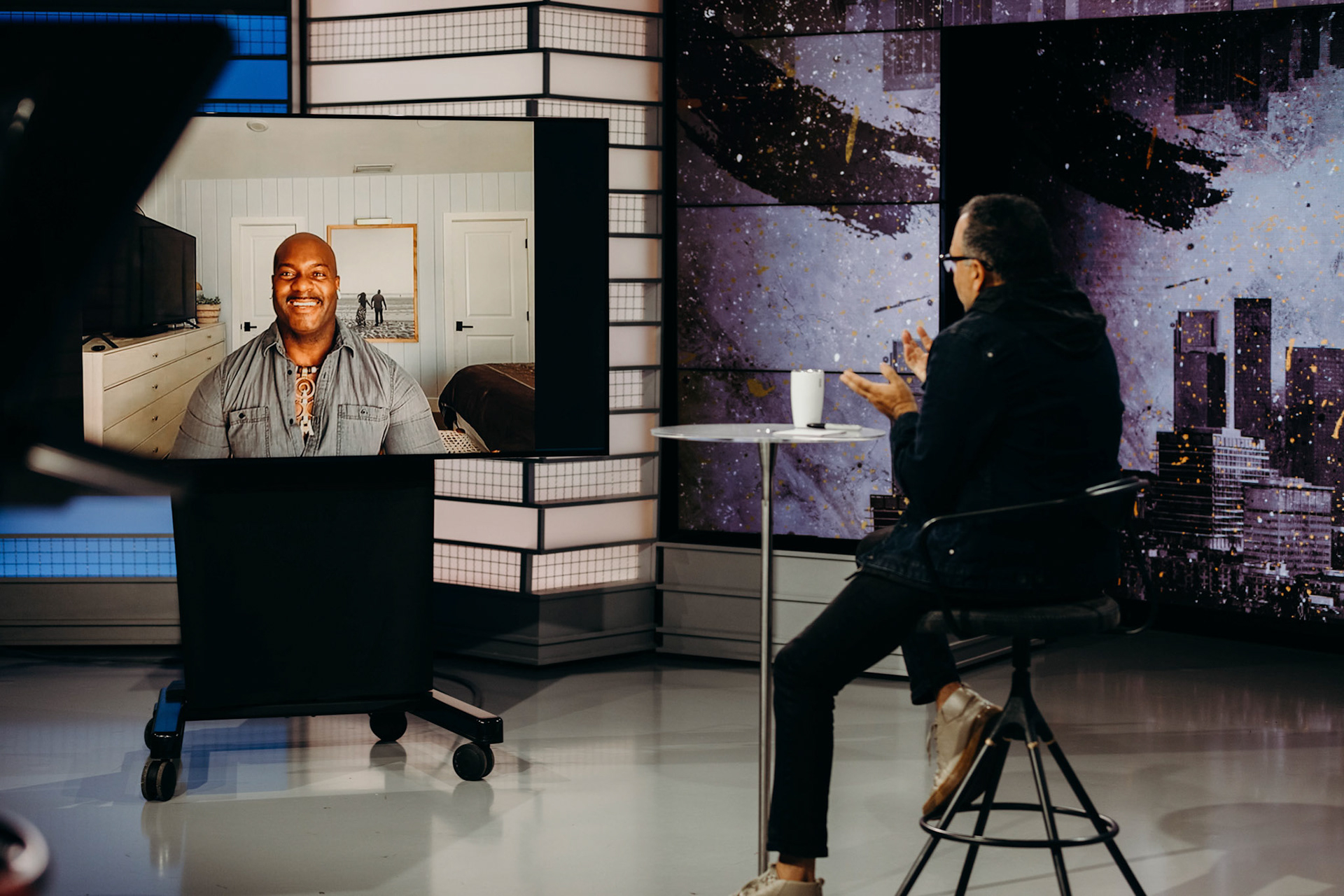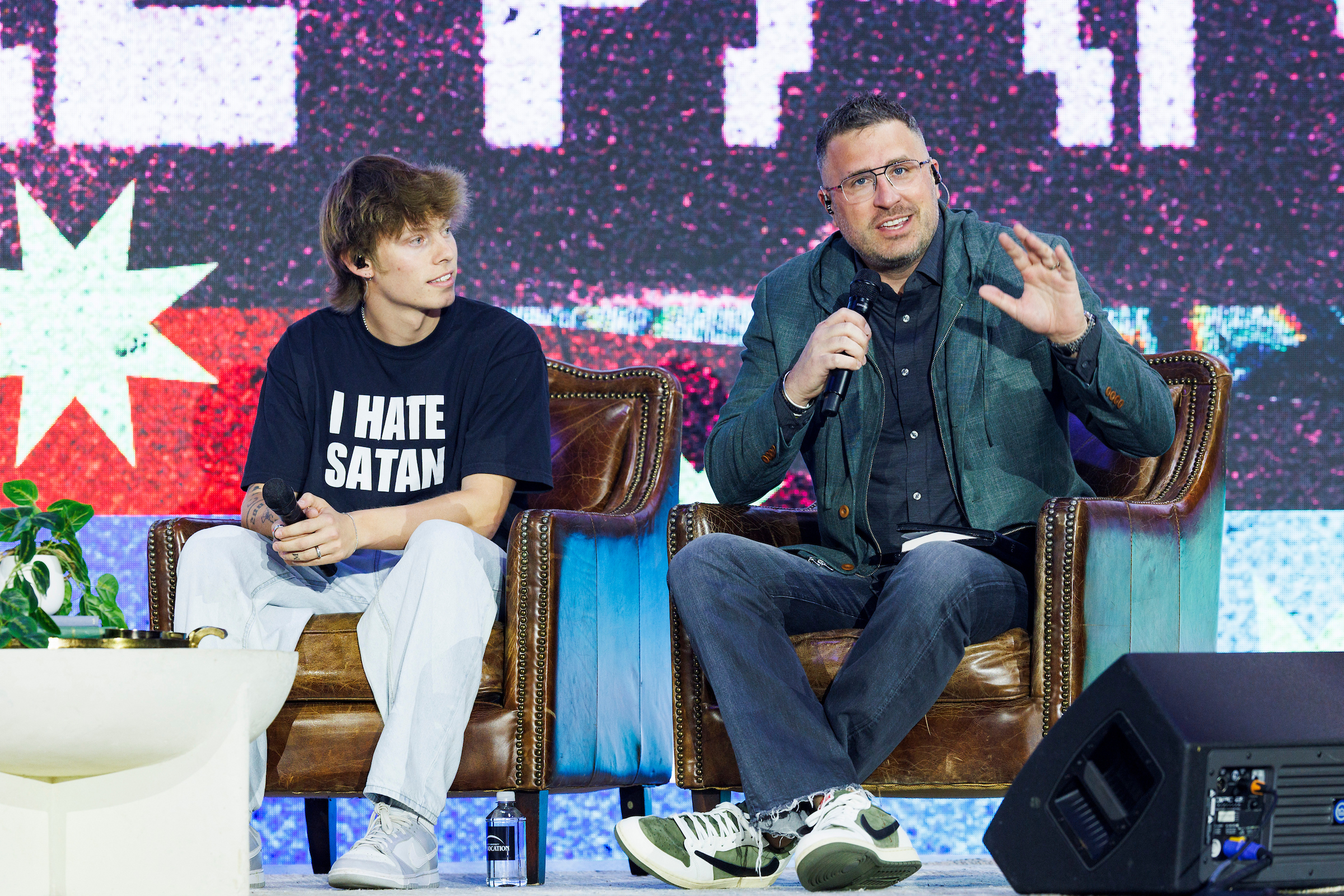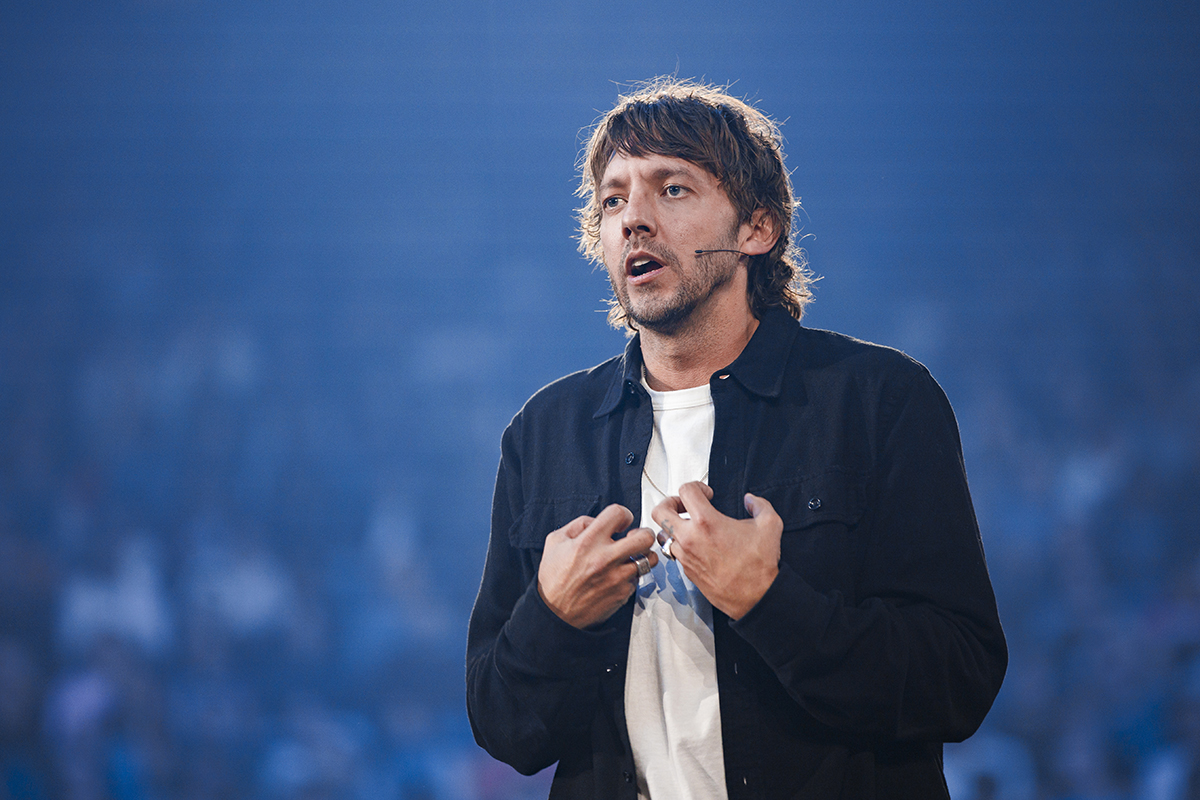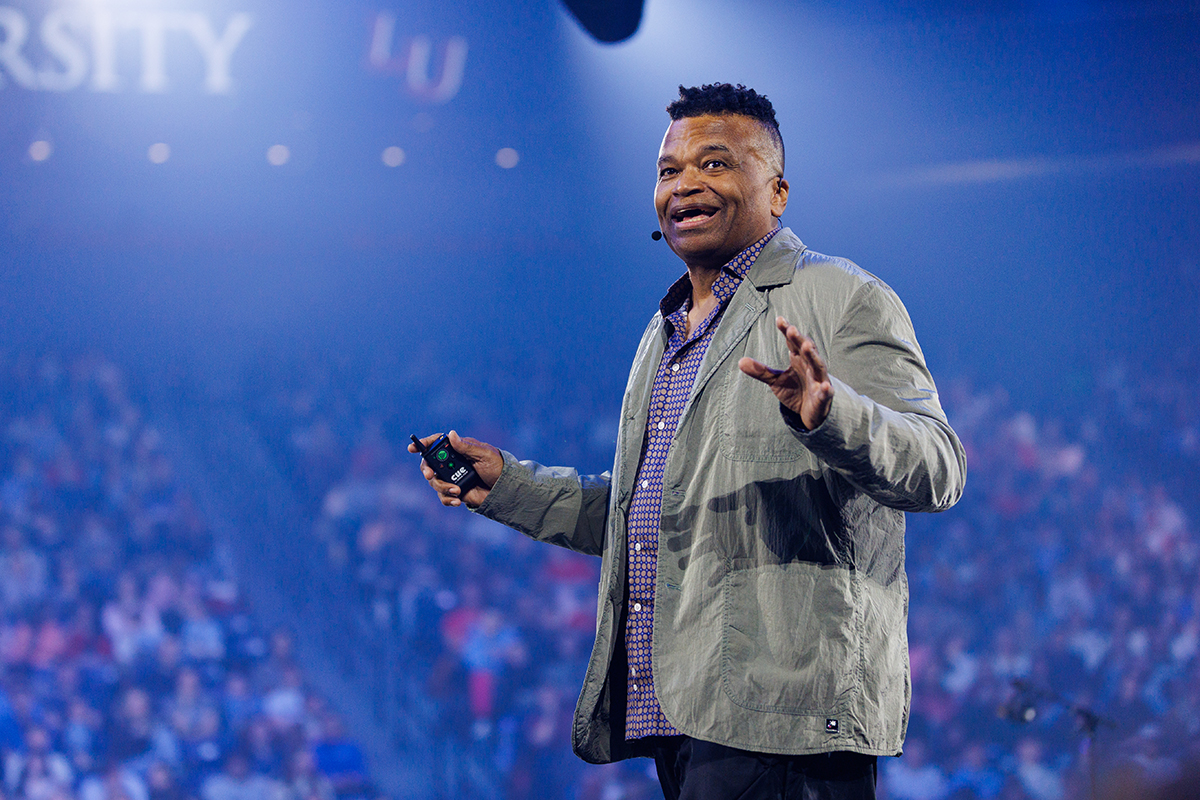‘Angel Cop’ Deon Joseph describes his guardian mentality as officer in Skid Row
October 14, 2020 : By Ryan Klinker - Office of Communications & Public Engagement
In his livestreamed appearance during Liberty University’s Convocation on Wednesday, LAPD Officer Deon Joseph spoke about the Christ-centered approach he has taken during his 22 years serving in Skid Row, a neighborhood just east of downtown Los Angeles cited as one of the most dangerous and marginalized places in America.
Liberty Senior Vice President for Spiritual Development David Nasser welcomed Joseph and shared his own personal respect for the 420,000 police officers across the United States who stand on the front lines to keep civilians safe.
“Our special guest today is a police officer who puts himself in harm’s way every single day to serve and protect,” Nasser said. “I love his passion for the Lord, his love for people, his honor code … and his courage.”
Becoming a police officer, however, was not something Joseph aspired to be originally, citing his experiences as an African American male in the time of the Rodney King riots.
“Like many young African American males, I was indoctrinated to hate, fear, and loathe law enforcement,” Joseph said.
But with minimal job opportunities available, Joseph found himself applying to one of the few places hiring — LAPD — and upon entering the police academy, his preconceptions were proven wrong.
“I discovered that 90% of what was told to me by friends and family was not true,” he said. “I was able to freely express how African Americans felt to my white and Hispanic classmates, and they were open and receptive. My whole idea of police work changed after that, and I became addicted to serving, watching my fellow officers from all walks of life help people, rescue people, and save lives.”
When he was assigned to Skid Row, he saw a negative cycle of criminality, drugs, and homelessness.
“Above them, the whole mentality of the system was, ‘It’s just Skid Row, why do you care so much, that’s what they deserve because they ruined their lives at some point,’” Joseph said. “In my spirit I couldn’t accept that, so I became a warrior and a guardian for them.”
To this day, Joseph said he doesn’t call the homeless or drug-addicted by the slang terms that society tends to use; he goes out of his way to call them his friends.

“I noticed that when you’re available, crime drops, and when I made myself available, people began having conversations with me. They stopped worrying about what I did and discovered who I was,” Joseph said. “I had to really infuse myself into these community programs, getting out of my car and saying hello. In any profession where your job is to try to improve someone’s life, especially people of color or in disenfranchised communities, they’re not going to trust you until they see you as family.”
Joseph’s dedication to becoming such a figure in the community led to two nicknames among the locals: “RoboCop,” a reference to his muscular build and tireless skill in catching criminals, and “Angel Cop,” based on his Christian values and genuine care for people. In a recent episode of HGTV’s “Extreme Makeover: Home Edition,” Joseph and his family received a completely remodeled house as a part of the season dedicated to community heroes.
Skid Row, as Joseph explained, is a recovery zone with 108 programs designed to help those experiencing countless issues, including mental illness, addictions, and domestic violence. The criminal element of nearby cities follows people as they fall to Skid Row, creating “a recipe for disaster.”
Joseph listed the main people groups there: a majority of good people just trying to survive in the only place available, drug addicts and ex-convicts who have done wrong but can be redeemed if they lived in an environment conducive to change, and career criminals who intend to cause corruption. With the cross-contamination of the good people who are scared of becoming victims themselves or terrified to speak up, the drug addicts and drug dealers, and the criminals who cause trouble and influence the community’s perception of law enforcement, Joseph said his job is to be the “tip of the spear” in the fight for safety and change.
“Jesus never gives up on us, no matter how many times we screw up, no matter how many times we disappoint Him, He keeps coming, walking in, and opening His heart,” Joseph added. “We can’t give up in showing who we are in our heart.”
Joseph offered his response to the recent calls to defund police in some American cities in reaction to cases of racial injustice, explaining the faults in this idea and the broken system that it would create.
“These movements are already proving to fail, and the shock to me is that our civic leaders are continuing to embrace them even though they’re failing out of the gate,” he said. “(The movement) emboldens criminality, it doesn’t stop criminality, and people are falling for this false narrative. … It’s actually hurting people of color more than you ever thought the negative perception of police officers could.”
Every morning, Joseph prays on his front porch for himself and his fellow officers, asking God for wisdom, protection, and the ability to serve according to God’s will. Joseph asked the students watching to join him in that same prayer and to be a light to officers they see out on the street.
“Tell them you love them, tell them that you want them to be safe, and I’m telling you, that could really close this chasm, because we need support, too, at a time like never before in history,” he said.
During the closing minutes of Convocation, Nasser briefly spoke with Liberty student Isaac Altizer, the son of a police officer, about how he wishes the public would view law enforcement. Much like Joseph, Altizer said that he prays for his father every day to “show the love of Jesus through his job.”
“I think this is true in all of life, but you have to lay down your presuppositions. They (police officers) are all still people, people with mistakes, but nevertheless the same as you and I,” Altizer said.


